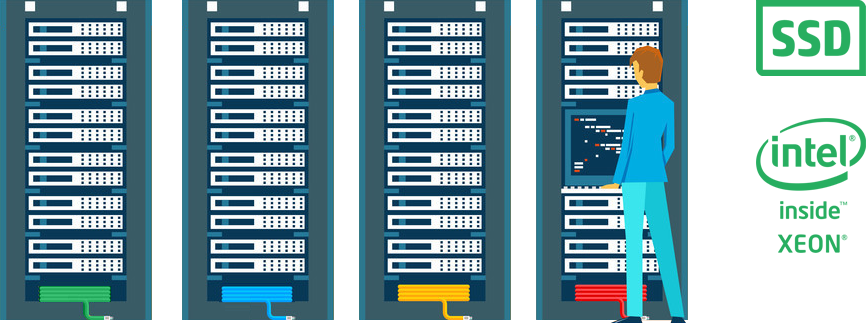While a shared hosting plan may initially feel like the right idea for a new blog, you may quickly discover its limitations should your visitor traffic ever start climbing. And that’s when VPS blog hosting can really show its colours. Even with the smallest VPS package, you can have access to additional resources for managing and hosting your CMS, which will give your blog site the kick it needs.
What are the advantages of VPS?
Well, privacy for a start. Virtual Private Servers (VPS) offer you a higher degree of privacy and control than a shared server would. They also allow you to manage your system with greater efficiency.
A VPS hosting plan gives you a unique IP address of your own, giving your data additional safety and security. You get full administrative rights over server usage, which allows you to have greater control over the content hosted.
You can also customise the server according to your needs, install different software, or even make upgrades by changing server configurations.
You’re in control with VPS
When you host your website on a VPS, you can easily manage everything via control panels like cPanel or Plesk. Plesk provides support for both Linux, Windows, and OSX, with the same familiar control panel. This makes it easy for host providers to offer the same control panel that can work on both Windows and Linux VPS platforms.
Burstable memory so you miss nothing
Why let a traffic surge cause your website to crash when you can reap the benefits of dedicated RAM, CPU, disk space, and bandwidth? With burstable memory, VPS hosting gives you additional computer power and boosts website performance right when you need it. During times of high traffic, it automatically gives you additional CPU time and memory to manage visitor spikes. It’s a no brainer.
Same advantages, lower costs
A VPS hosting platform for a blog can bridge the gap between a shared hosting and dedicated hosting plan by offering the same advantages of a dedicated server at lower costs. VPS hosting allows blog owners to host multiple sites on their servers, including popular CMS sites like WordPress, Joomla, and Drupal. It allows bloggers to utilise multiple platforms using just one server, and expand their capabilities without having to compromise on quality or performance.
WordPress VPS is as flexible as it gets
A WordPress VPS provides flexibility to host multisite networks based on WordPress. This allows you to run multiple blogs using different domains on a single website. On a shared hosting platform, this may not be possible as they may not be able to manage the traffic coming from a multisite network. In such cases, it definitely makes more sense to switch over to a more reliable and efficient blog hosting platform like a WordPress VPS.


